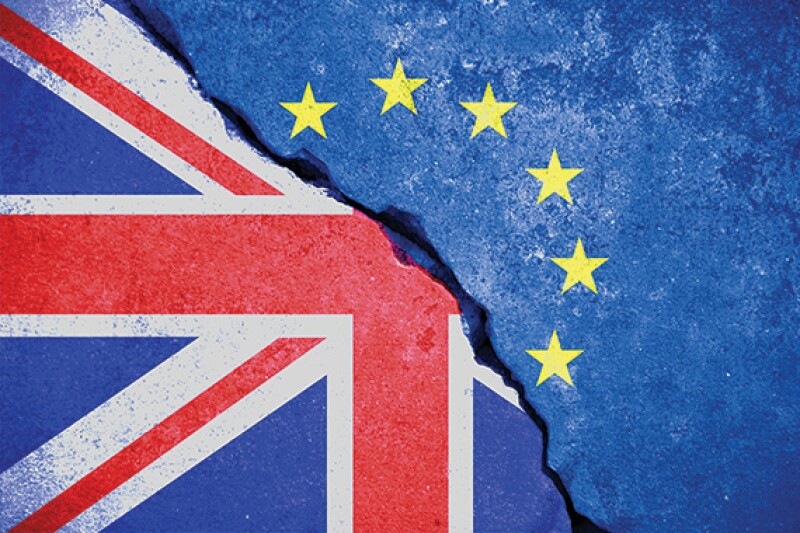
|
Brexit is a new entry this year |
The narrow vote by the people of the UK to leave the European Union in a referendum on June 23 took the world – and much of the UK itself – by surprise.
The decision has set the backdrop for the most complex set of negotiations in legal history. It took Greenland three years to exit the EU – a year longer than the UK will have to navigate its exit once Article 50 of the Lisbon Treaty is triggered – and most of the disputes of note in those negotiations concerned fishing.
Most people in the tax sphere hoped that Brexit would not happen because leaving the EU brings with it an almost innumerable host of questions.
It throws into question huge amounts of UK legislation, and the uncertainty this brings is one of the most potentially damaging issues a business may be forced to deal with. Worldwide, 41% of businesses are still waiting for further clarity on Brexit before assessing its broader impact, according to a recent joint survey by International Tax Review and KPMG.
Other questions that remain unanswered – and may remain unclear in 2017 – include: Will the UK retain access to the European single market, or will tariffs be placed on imports and exports? Which industries will be affected? What will happen with customs? And excise? Will the UK continue to follow the EU's VAT Directive? How will case law from the European Court of Justice apply? Could the UK stay under its jurisdiction? If not, what about cases that are still underway at the time the UK leaves? Will the UK have to adhere to the Anti-Tax Avoidance Directive? What will happen to information exchange with EU countries?
While International Tax Review has written several articles on Brexit so far, the key word continues to be "uncertainty". This uncertainty, however, is not limited to the UK and EU – it has also had far-reaching consequences around the world.
"The withdrawal of the UK from the EU constitutes an event that will wield a substantial impact not only on the future of European integration but also on the international community as a whole, which is why the world including Asia is paying close attention to the Brexit negotiations," said an open letter written by the Japanese government to the UK in the aftermath of the referendum result.
The letter went on to make several requests of the UK and EU, including the preservation of pre-Brexit tariff rates and customs clearance procedures and of the 'single passport' system, which is incredibly valuable for companies in the financial sector.
Despite the uncertainty, some tax conclusions can be drawn from developments since the referendum vote.
The UK will continue to take part in the BEPS Project
The UK has been a major proponent of the OECD's Action Plan on Base Erosion and Profit Shifting (BEPS). There is no indication that this trend will be broken. Indeed, the UK surprised many when it became the first nation to include public country-by-country reporting provisions in its laws.
Crucially, as an indicator of post-Brexit policy, this legislative change happened after the referendum, when the 2016 Finance Bill (in which the power to switch on the requirement for public disclosure of tax filings was included) was unanimously approved by the House of Commons on September 5.
Since then, Chancellor of the Exchequer Philip Hammond has doubled down on the UK's public commitment to tackling tax evasion, avoidance and aggressive tax planning, and has stressed that the UK tax gap is "now one of the lowest in the world".
However, the UK government has remained silent on whether it plans to apply pressure on its overseas territories – where a significant proportion of the world's tax planning takes place – to become more transparent.
The UK will remain an attractive place to do business
The government knows that it has to work hard to keep jobs in the UK, particularly if it were to fall into recession after exiting the EU. The country that gave the world patent boxes is more than capable of creating more quirks in the tax system to keep companies onside.
Already, it has given assurances to car manufacturers, leading to further UK investment and increasing production – though what these assurances were remain a mystery.
The UK's corporate tax rate will continue to fall
Since the Conservative Party took power in 2010, at first in coalition with the Liberal Democrats and then as the majority party in 2015, UK corporate tax has fallen from 28% to 20%.
In the immediate aftermath of the Brexit vote, then-Chancellor George Osborne – a former Global Tax 50 entrant – put corporate tax cuts at the heart of his strategy to keep Britain competitive post-Brexit, setting out plans to bring the rate down to 15%.
Hammond, his successor, confirmed in the Autumn Statement in November that the corporate tax rate will continue to fall, in line with Osborne's pre-Brexit plans, to 17% by 2020. However, no radical corporate tax cuts to 15% were announced.
In 2017, Brexit will remain an important development to watch. Prime Minister Theresa May plans to trigger Article 50 in March, which will allow the UK and EU to begin negotiating the UK's exit. What this agreement holds will not come quickly enough for the many businesses trying to plan for the change.
The Global Tax 50 2016 |
|
|---|---|
The top 10 • Ranked in order of influence |
|
2. The International Consortium of Investigative Journalists |
|
3. Brexit |
4. Arun Jaitley |
5. Jacob Lew |
|
10. Donald Trump |
|
The remaining 40 • In alphabetic order |
|









